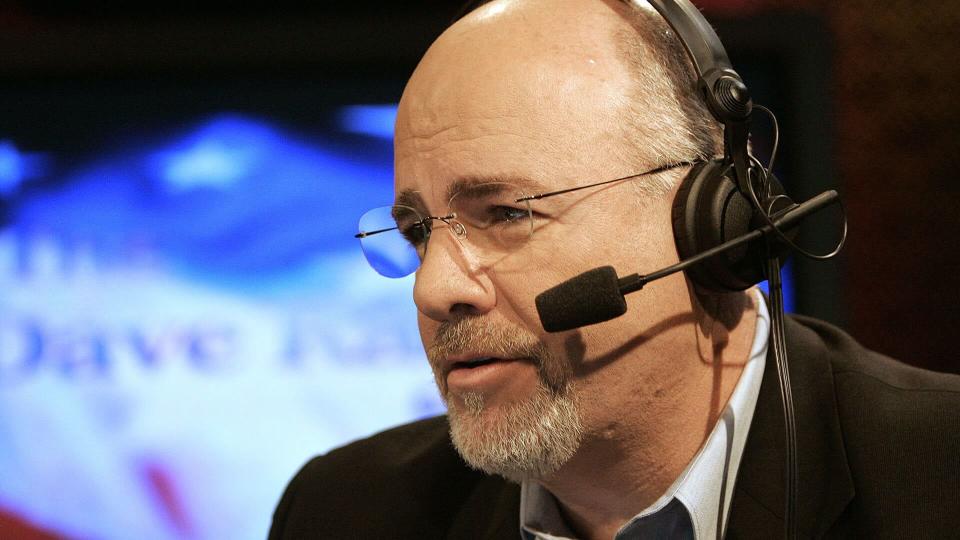Sam DiSalvo
·4 min read
On a recent episode of “The Ramsey Show,” host and finance expert Dave Ramsey railed against one policy that he believes you should absolutely not enroll in: whole life insurance.
Mortgage Interest Rate Forecast for 2023: When Will Rates Go Down?
With a Recession Looming: Make These 3 Retirement Moves To Stay On Track
“It’s not a mild dislike. I hate it,” Ramsey said of whole life insurance policies.
Ramsey considers whole life insurance a poor investment and way too expensive for what you receive. Read on to find out what exactly whole life insurance is and why Ramsey says there are better things to do with your cash when planning for the future.
What Is Whole Life Insurance?
You’ve probably heard of life insurance, and you might even be enrolled in a policy. Typically, there are two types of life insurance: term and whole life. Term life insurance covers you for a specific amount of time, while whole life insurance covers you for your entire life. For both, you pay a monthly premium, but you pay more for whole life insurance. Part of the added cash you pay for whole life insurance goes into an account that is guaranteed cash value growth.
Live Richer Podcast: How To Leverage Your Investments
Why Does Ramsey Think Whole Life Insurance Is a Bad Deal?
According to Ramsey, every $100 you pay in premiums for whole life insurance can buy you the same amount of term life insurance for about $5. Ramsey explains that whole life insurance is roughly 20 times the cost of term insurance. For the extra money you’re paying, whole life insurance promises to pay interest on what you’re paying in, but Ramsey says it’s a very small amount and takes time to start accruing value.
“Your cash value build-up for the first three years is $0. One hundred percent of that [additional] $95 you’re paying goes to fees,” Ramsey said on his show.
After you finally do start earning interest on the money, Ramsey said, it equals out to about 1.2% on average.
When Can You Withdraw Money From a Whole Life Insurance Policy?
On Ramsey’s website, he discussed how you can withdraw money from your whole life policy’s cash value account only when you get to what’s defined as “maturity age.” That age? Higher than you might imagine.
“Some insurance companies define this age differently, but most agree on 120 years old,” Ramsey wrote on his website.
What If You Don’t Live To Be 120?
Since only one person on record has lived past 120, it’s very unlikely you’ll live to “maturity age.” So what happens to your money? On his website, Ramsey wrote, “If you didn’t do anything with that cash value while you were alive, guess what? The insurance company keeps it! Your family gets the death benefit, and the insurance company nabs your cash value account.”
What If You Take Out Money Before Maturity Age?
If you do want to cash out the whole life insurance policy before you die, you won’t get the entire amount in your cash value account. If you surrender your policy, you’ll get what’s referred to as a “surrender value” of the account, which is a fraction of the total amount.
This also means your policy is terminated and will not be in place in the event of your death. You also can withdraw amounts from the policy tax free, provided it doesn’t exceed your gains. Another option is to take out a loan against the policy, which obviously means you would have to pay back the amount you take.
What Does Ramsey Recommend Instead?
On his show, Ramsey said contributing to a 401(k), Roth IRA and term life insurance are all better alternatives to whole life insurance.
One thing he cautions: Make sure you get your term life insurance policy in place before you cancel your whole life insurance, just so you’re never without some sort of life insurance policy.
If you have your investments in a good place and an adequate amount of savings, Ramsey said, you don’t need a whole life insurance policy.
“If you’ve got $2 million or $3 million in investments and zero debt, and you die, I think your wife will be OK,” Ramsey told a caller on his show.
More From GOBankingRates
The 15 Biggest Bank Failures in US History
Financial Insight in Your Inbox: Sign Up for GBR's Daily Newsletter
Maximize your savings with these 3 expert tips
This article originally appeared on GOBankingRates.com: Dave Ramsey Shares the One Financial Product That Just Isn’t Worth It
